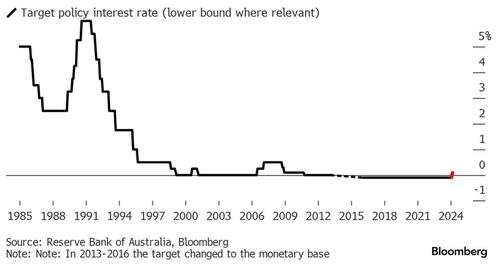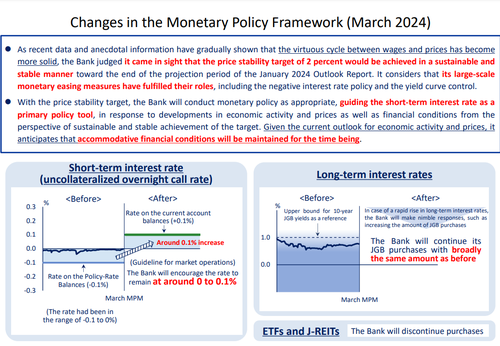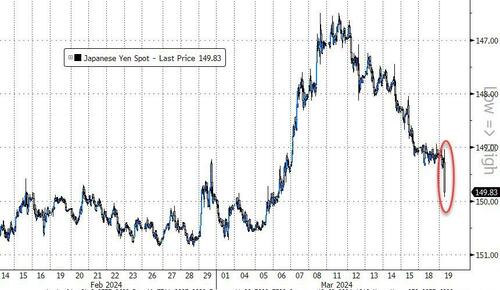As has been thoroughly warned, straw-manned, leaked, and hinted at over the past few weeks (here, here, and here for example), The Bank of Japan hiked interest rates tonight for the first time since 2007. This move ends the world's last negative interest rate policy.
The vote, at 7-2 to scrap the negative interest rate (setting the policy rate in range between 0% to 0.1%), was closer than many expected with policy board members Nakamura and Noguchi dissented.
Source: Bloomberg
Additionally, the bank has abandoned its yield curve control policy.
The BOJ will continue to purchase JGBs with “broadly the same amount as before," but buying of ETFs and J-REITs has apparently been scrapped (while laying out a plan to scrap corporate debt and commercial paper buying).
In terms of forward guidance, Bloomberg notes that the bank isn’t offering much. It says it will continue to pay attention to developments in financial and FX markets, and their impact on Japan’s economic activity and prices.
But the previous pledge to “not hesitate to take additional easing measures if necessary” has been removed.
This was all in line with what had leaked out in domestic media reports over the past week but USDJPY still rose on the news (yen weakness)...
The BOJ actually downgraded its assessment of consumer spending and production, so there’s still a sense of caution.
The BoJ's move comes as inflation has gradually returned to the nation with the most immediate catalyst being last week, when Japan's largest union announced its biggest annual wage hike in three decades.
Despite the runway having been heavily foamed ahead of tonight's decision, Veteran market commentator John Authers warns of significant implications for the rest of the world:
“Waiting over the years for Japan to beat deflation and raise rates has been rather like hoping for Lucy to let Charlie Brown kick the football, but if the BOJ is briefing the press like this, it must be a very real possibility,” he writes.
“There are implications for carry traders, and for Japan’s giant neighbor, China.”
Finally, even with the decision to pull the trigger, we note that the debate over whether the BOJ has met the supposedly main condition for raising rates - stable 2% inflation - is hardly over.
As Bloomberg reports, inflation may slow as the impact of imports-driven price gains wears off, meaning that if officials go ahead and change policy, they could end up facing criticism in the future that they’ve passed a premature judgement on prices, former BOJ board member Takahide Kiuchi recently wrote. “And that in turn could become an obstacle to smooth policy normalization,” he said.



